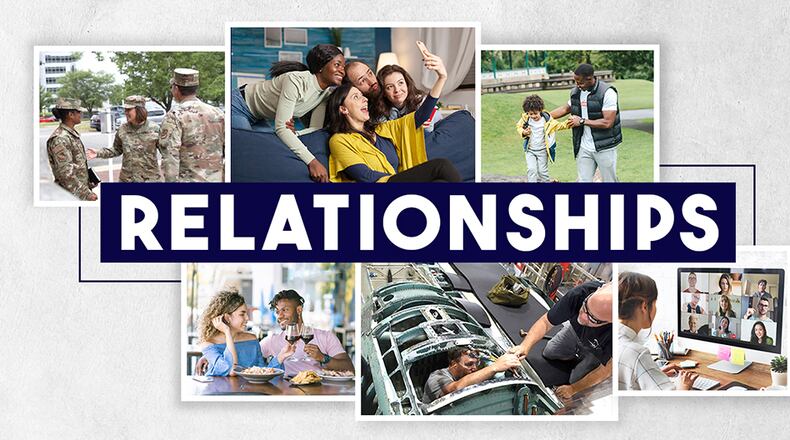Developing and maintaining good relationships takes effort – they aren’t static. They are living, dynamic aspects of our lives that require attention and care. The first and most important factor to building and maintaining healthy relationships is communication. Make time to connect with those that matter the most to you. Spend time together, let little grievances go and express love and compassion to one another.
If you have grown disconnected from an old friend, think of a memory that makes you laugh and text or email it to your friend. A quick message that brings nostalgia and connection about the good old days will let your friend know that you are thinking of them, even when you haven’t been in touch in a while.
Without strong relationships, it is possible to feel as if you are alone.
The National Institutes of Health offers the following tips on how to nurture your relationships:
· Be kind. This most-basic behavior remains the core of successful relationships. Expect others to treat you with respect and honesty.
· Be a good listener. Ask what’s going on in your family and friends’ lives. Let the other person know that you are paying close attention through eye contact and body language. Listen to others without judgement or blame. Be caring and empathetic.
· Disagree with others respectfully. Misunderstandings can happen, and that can lead to people being upset, hurt or confused. Conflicts should not turn into personal attacks.
· Show that you can be trusted. Being responsible, reliable and dependable is key to forming strong relationships. Follow through on commitments you’ve made to family and friends.
· Protect yourself from violent and abusive people. Set boundaries with others. Decide what you are and aren’t willing to do. It’s okay to say no.
The workplace has its own uniqueness in how we build relationships and relate to each other. Building healthy workplace relationships is important for career success, and the key to a positive work environment. Many full-time employees spend more of their waking hours with fellow staff than they do with their families or friends. Co-workers rely on each other to contribute support, expertise and other resources to fulfill the Air Force mission.
Benefits of establishing positive workplace relationships include enhanced teamwork, improved morale, increased productivity and higher employee retention rates.
To encourage positive workplace relationships:
· Be friendly and approachable to co-workers.
· Communicate effectively. Without proper communication, things fall through the cracks, people work in silos, and it can feel like everyone is working for themselves instead of working as a cohesive unit.
· Be accountable. Deliver on your responsibilities and commitments. Team members will be more engaged if they feel you are pulling your own weight.
· Clarify roles. Knowing everyone’s role and being familiar with the responsibility of those roles creates efficiency and flexibility. Review responsibilities when action planning.
· Recognize contributions. Sometimes a simple “thank you” can go a long way in building any relationship. A culture of appreciation from both the leader and the team will make people want to put in discretionary effort since they know it is recognized.
· Wait before you push send. Be professional and don’t let a careless email ruin a workplace relationship.
· Respect others. Treat others as you wish to be treated. Be courteous, use non-offensive language, and respect people’s time.
Positive workplace relationships = increased employee engagement. Engaged employees are more productive, take fewer sick days and are less likely to leave the organization.
It’s never too late to reconnect with family, old friends or develop new friendships. Investing time in strengthening your relationships can pay off in better health and a brighter outlook for years to come.
Relationships are not always easy. Sometimes they can be difficult and stressful. If you think you are in an unhealthy relationship and would like to talk with someone, support services are available for the Air Force military and civilian members and their families.
For work-life support resources, webinars and information as well as non-clinical, confidential counseling, check out the following:
Military and families: Military OneSource (800) 342-9647 or visit militaryonesource.mil.
Civilian employees and families: Employee Assistance Program at 866-580-9078 or visit AFPC.af.mil/EAP.
For more information on building healthy relationships education materials, visit USAFwellness.com or contact your local Civilian Health Promotion Services team. Comprehensive information on how to build healthy relationships can be found at nih.gov/wellnesstoolkits.
About the Author
